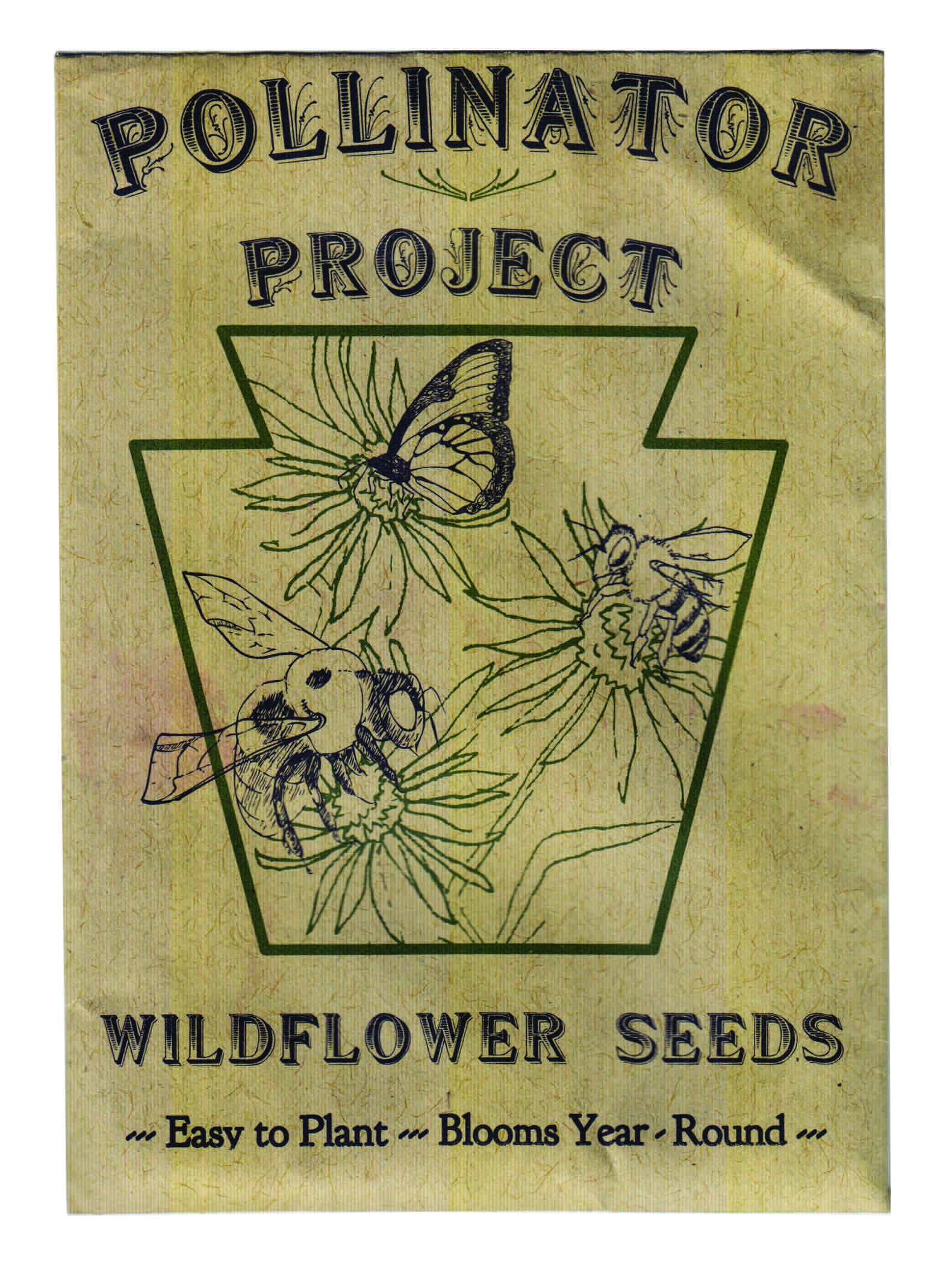by Katie Bohri
Philadelphia-based beekeeper Chelsea Thoumsin started the Pollinator Project as a simple answer to a complicated question. “A lot of people started asking me, ‘If I can’t keep my own bees, what can I do to help them?’” The simplest way to help bees is to plant a variety of “forage”—the industry term for the flowers bees pollinate in search of food—that they can access from early spring and into the leaner months of fall. Pollinator Project has simplified this task by pre-packaging pollinator-specific seeds that will bloom throughout the season.
Each packet contains around 500 non-GMO seeds from a variety of native wildflowers that will grow in stressful urban conditions like low water, high heat and blazing sun. “They would grow in a sidewalk crack if they had to,” Thoumsin says.
Last year, according to the USDA, beekeepers lost 42.1 percent of their hives.
Planting wildflowers makes a difference. Not only will they feed bees, but they will also attract more pollinators to your garden and increase its yield. “There are certainly plants, like squash and tomatoes, that honeybees are especially good at getting into and pollinating,” Thoumsin says.
Thoumsin got her first lesson in beekeeping when a friend asked her to help out with his own hives. Inspired by a childhood of watching nature documentaries, she jumped at the chance to interact directly with a bee colony. “The whole initial experience was so amazing; it felt like something I should have been doing all along.”
The transition from keeping bees as a hobby to becoming an activist-entrepreneur with Pollinator Project was, for Thoumsin, easy. “I have lots of ideas rolling around in my head, but Pollinator Project seemed like something I could create and manage along with everything else going on in my life,” says Thoumsin, who believes beekeepers must be creative and entrepreneurial to be successful.
Thoumsin plans to donate a percentage of Pollinator Project’s proceeds to the Xerces Society, an organization she admires for their 40-year legacy of raising awareness about invertebrates through education and research. It’s a mission she shares.
“We are just starting to notice that our actions as a species are harming the seemingly ‘little guys,'” Thoumsin says, “when, in fact, if we just shift our perception a small bit−just a degree or two−we come to realize that they are tremendously large in the scale of importance to our very own survival.”
Pollinator Project seed packets are available through Thoumsin’s site, and local retailers including Art in the Age of Mechanical Reproduction and the Fair Food Farmstand at Reading Terminal Market.





